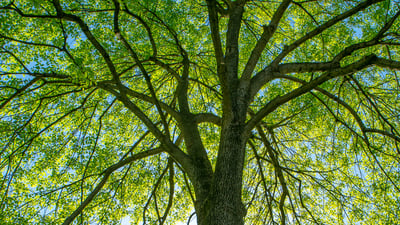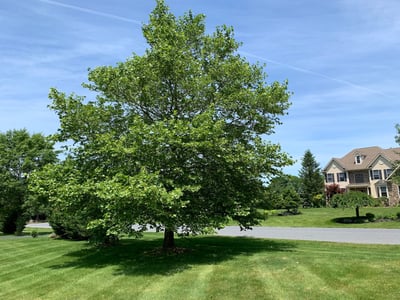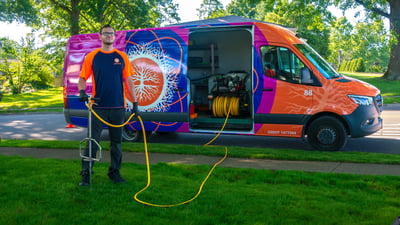

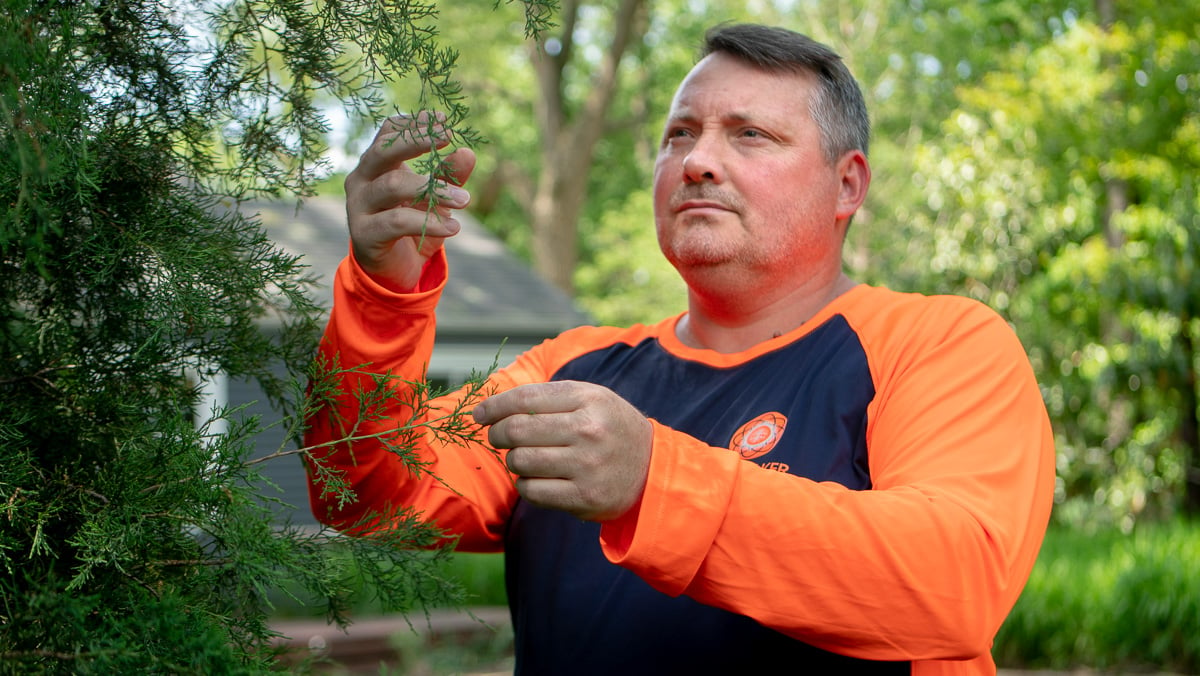
Pine trees are a popular tree choice here in Louisville, KY. There are a lot of good reasons why people like having pine trees in their yards. They are relatively low maintenance, can provide some privacy screening, and offer year-round interest due to their evergreen nature.
While pine trees are a relatively resilient tree, they aren’t without their problems. If you have an unhealthy pine tree on your property, you might be wondering what you can do about it.
In this article, we’ll dive into how to help a struggling pine tree. We’ll talk about pine tree pests and diseases…and more.
We’ll cover:
Identifying an Unhealthy Pine Tree
Common Pine Tree Diseases
Common Pine Tree Pests
Other Pine Tree Problems
How to Help a Struggling Pine Tree
Choosing Tree Care Services in Louisville, KY
Are you worried there is something wrong with your pine tree? Small problems might go unnoticed but a larger infestation of pests, a disease, or some other health concern can start to show up with various symptoms.
Signs of an unhealthy pine tree include:
Mass needle discoloration, such as turning gray, yellow, or brown.
Mushroom growth around the trunk.
Signs of problems with the bark like sawdust or holes.
Anytime that you notice something going on with your tree, it is worth calling in a professional to assess what is going on. While many pine tree problems are solvable, there are certain issues that simply can’t be resolved.
For instance, it’s nearly impossible to overcome pine tree problems that relate back to poor planting. If your pine trees were installed in a location where they cannot thrive, you may experience perpetual issues.
A qualified tree care professional can help you determine exactly what’s going on and whether or not it’s treatable. We’ll dive more into some potential problems you may be experiencing.

Pine can experience problems with disease just like other trees. Here are some of the common pine tree diseases and their symptoms.
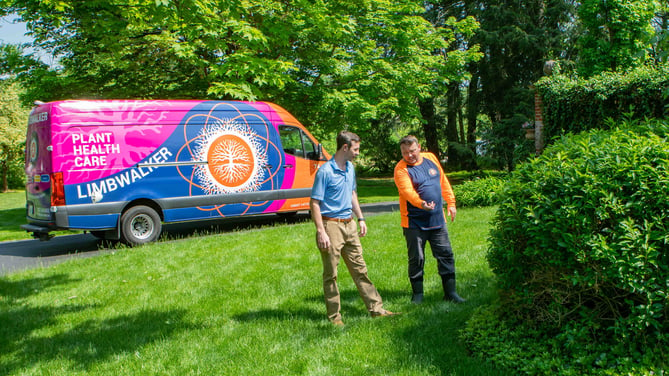
Another potential problem with your pine trees could be pine tree pests. Some of the common pine tree pests include the following.
Pine tree pests and diseases are not the only potential problems that your pines will experience. Like other trees on your property, they can also be subject to environmental stressors, storm damage, and more.
Planting mistakes are one of the common pine tree problems that we see. Pine trees typically require full sun but homeowners (or their predecessors to that home) might have installed their pines in a shady location. That can mean they will perpetually struggle.
Sometimes pine tree problems have to do with the soil in which they are planted. Healthy soil is vital to the health of any tree. If your soil is in rough shape, your trees, and other plants may begin to struggle. Keep in mind that pine trees prefer acidic, moist, and well-drained soil. They perform best in soil that has a pH between 4 and 7.

If you suspect that there is something wrong with your pine trees, it is worth getting a tree care professional to evaluate what is going on. Properly diagnosing the problem is the first step to implementing an effective solution.
Certain pests and diseases have curative treatments. In addition, sometimes environmental conditions can be corrected. But as we’ve mentioned, not all problems are solvable. It’s important to have a tree health professional make this determination.
Often, services that are part of a Plant Health Care program can help make a difference in your trees’ overall health.
Put simply, plant health services combine fertilization, pest control, and disease control into a program that will help care for your landscape. Although not a magic bullet or an instant cure, plants that are already healthy and well-supported tend to fare better against problems that arise.

At the end of the day, you just want to feel confident that your trees are in the best hands. It can actually be pretty complicated to understand what exactly might be attacking your tree as there are also many diseases and environmental stressors.
The good news is that you don’t have to figure it out on your own! That’s exactly why you want a tree care professional in your corner. They can help you determine what problems your pines might be experiencing and whether there are solutions. They can also help implement a Plant Health Care program that will boost the overall health and performance of your pines.
At Limbwalker, we take a proactive approach to tree and shrub care, aiming to prevent problems when we’re able to. We have strong horticultural knowledge and experience, allowing us to make recommendations in regard to what tree pests might be problems on what trees.
We believe that Plant Health Care is a valuable protective measure for your landscape. You never want to lose a tree or shrub, particularly to a problem that could be avoided or treated.
It all boils down to doing what’s best for your Louisville property. You deserve to be able to enjoy your landscape without worries.
If you’d like to learn more about plant health care for your Louisville home, get in touch, get your quote, and get back to enjoying your yard.


